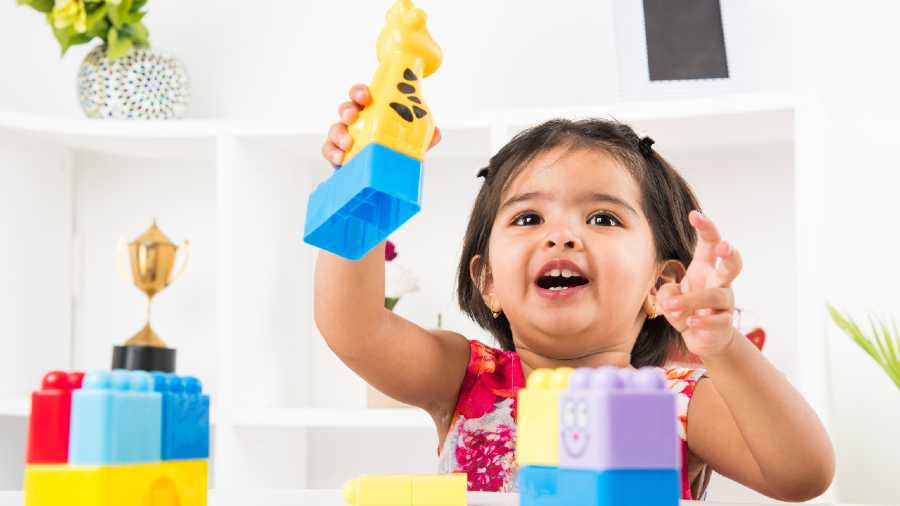Montessori teachers and psychiatrists are noticing a delay in speech development among children aged around 3, a trend they are attributing to long confinement at home and lack of interaction with other children because of Covid.
The pandemic had robbed children of the opportunity to interact with their peer groups — most of which happens in school — which provides a stimulation to speech development.
Such delays are being diagnosed in greater numbers since the reopening of pre-primary schools because a teacher is better placed than parents in identifying deficits in speech development. A teacher, unlike parents, observes a child in a group and can compare his or her progress with that of others. “Many of the speech delays which could be diagnosed as some other condition were not being identified earlier (before the reopening of pre-primary schools). The diagnosis was getting delayed. Parents could not identify the problems that teachers can. Such children are being referred for consultation,” said Apurbo Ghosh, director of the Institute of Child Health.
Ghosh said stimulations like talking to a child or social interaction help a child pick up speech. “But children are denied stimulation if there is no scope to interact and they are glued to the screen while parents are busy,” Ghosh said.
At one pre-school, the head noticed that some of the students who are around four years old and some who had just enrolled at three-plus were only uttering a few words and not being able to say a sentence.
"We prepared a questionnaire and found that some of the children displaying signs of speech delays were from nuclear families. They were watching videos for too long. In at least one case, the child was traumatised after having to quarantine in several spells because of Covid," said Parmindar Kaur, founder principal, Verbena Playschool.
In Leap Years Playschool, the teachers have asked the parents to try and wean the children off mobile phones and videos, many of which are in multiple foreign languages. “Much of what children are watching is unmonitored and that has to be controlled,” said director Puja Dugar.
Psychiatrist Sanjay Garg said that in some instances, children tended to avoid speaking if their needs were fulfilled. “If their requirement is fulfilled, the children do not need to communicate,” said Garg. “Parents are bringing to us children with speech delays because teachers have told them to consult us.”
He said that in some cases where there was no underlying condition, speech therapy and behaviour modification therapy were being suggested. “We use a stimulus that will push and encourage the child to speak," said Garg.
Psychotherapist and counsellor Farishta Dastur Mukerji concurred with other experts, saying "lack of socialisation" was a significant reason for delays in speech development. "Because the child was not socialising, even the need to communicate was restricted,” said Dastur Mukerji.
